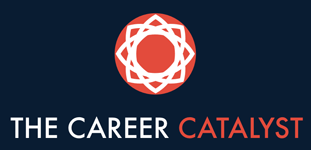
Have you ever wondered what role luck plays in the job-search? The truth is, it’s a very real factor, but luck is also something that you can work to maximize. In career circles, this is often called planned happenstance. It’s not magical thinking or manifesting or anything like that. It’s just sort of getting yourself ready and planting yourself in the path of good things.
Step 1: Be proactive. Yes, I know, this is a bit of a cliché, but it’s true anyway. As you start down the path to your next career, identify obstacles, opportunities, people you’d like to meet, skills you’d like to gain. Start addressing these, to the best of your ability. Don’t kill yourself to get them done, obviously, and don’t spend a lot of money on something that you’re not clear will be helpful. But do look around to see if there are some things that you can prepare in advance. For instance, does everyone in your chosen field know Python? Look into certifications through LinkedIn Learning or Udemy. Are there people in the field you really admire? Brainstorm ways to start conversations with those people. Prep work will set you up for success.
Step 2: Set concrete goals. That doesn’t mean those are set in stone, but you still want to clarify what you want and about when you feel it should happen. Being specific will help you understand when you need to begin taking action, and even what some of those action steps might be. Don’t be afraid to brainstorm some crazy things at first. Outlandish ideas may lead you to practical ones, or suggest other paths to take. You may even want to try a mind-mapping exercise here. Be messy and creative with this step.
If it makes sense, write your distilled ideas down somewhere more permanent after you run through the brainstorming parts of this. I like to have an appealing visual to look at as I move along, so I crack out the colored pens and creative flourishes for the finished product.
Step 3: Make some time goals for these ideas. Again, nothing written in stone, but a general idea. For instance, you might decide that you want to connect with 3 people at Company A by the end of summer, or complete your first short story to put up on Patreon by your upcoming birthday. It’s important that these goals be realistic, but it’s also important that you give yourself leeway in case something happens that changes your timeline. (You can change what you’ve written down, too!)
Step 4: Consider an accountability partner or team. If that would be helpful, brainstorm some ways to find people. You can think about who in your friends and family might be in similar stages with their lives, or you can take to the interwebs and find meetups or social media groups. Things don’t have to match exactly. You may, for instance, pair up with a friend who’s trying to lose 15 lbs. or a cousin who’s training for a marathon. Set up regular check-ins with your accountability partners, and hold each other to your goals. At the end of each check-in, each of you should agree on what you will have accomplished by the next time you meet. If you really struggle with deadlines, you may even want to agree to a penalty for yourself if you don’t do what you’ve set out to do. The penalties you agree on should be realistic but also unpleasant so you feel motivated by them. For instance, a client of mine used to tell me he was going to donate $50 to a charity he hated if he didn’t complete the work.
Step 5: Be persistent. We all have that little inner voice that tells us we can’t do something or we’re doomed to fail or that the task ahead is too much. But that little voice is just an opinion, and one that you can reject. Recognize those thoughts for what they are and do what you can to inspire yourself to move past them. (“I see you, self-doubt! Shut up, I’m working now.”) You may even want to think of little rewards for yourself for each milestone. For instance, I was recently given a little bag of fancy chocolate-covered dried fruit, which I put in a container near my work desk. Then I set out goals for myself for the week, with a note that I could eat a piece of chocolate as I completed the less pleasant tasks. Small goals, small rewards, and over time, big results.



